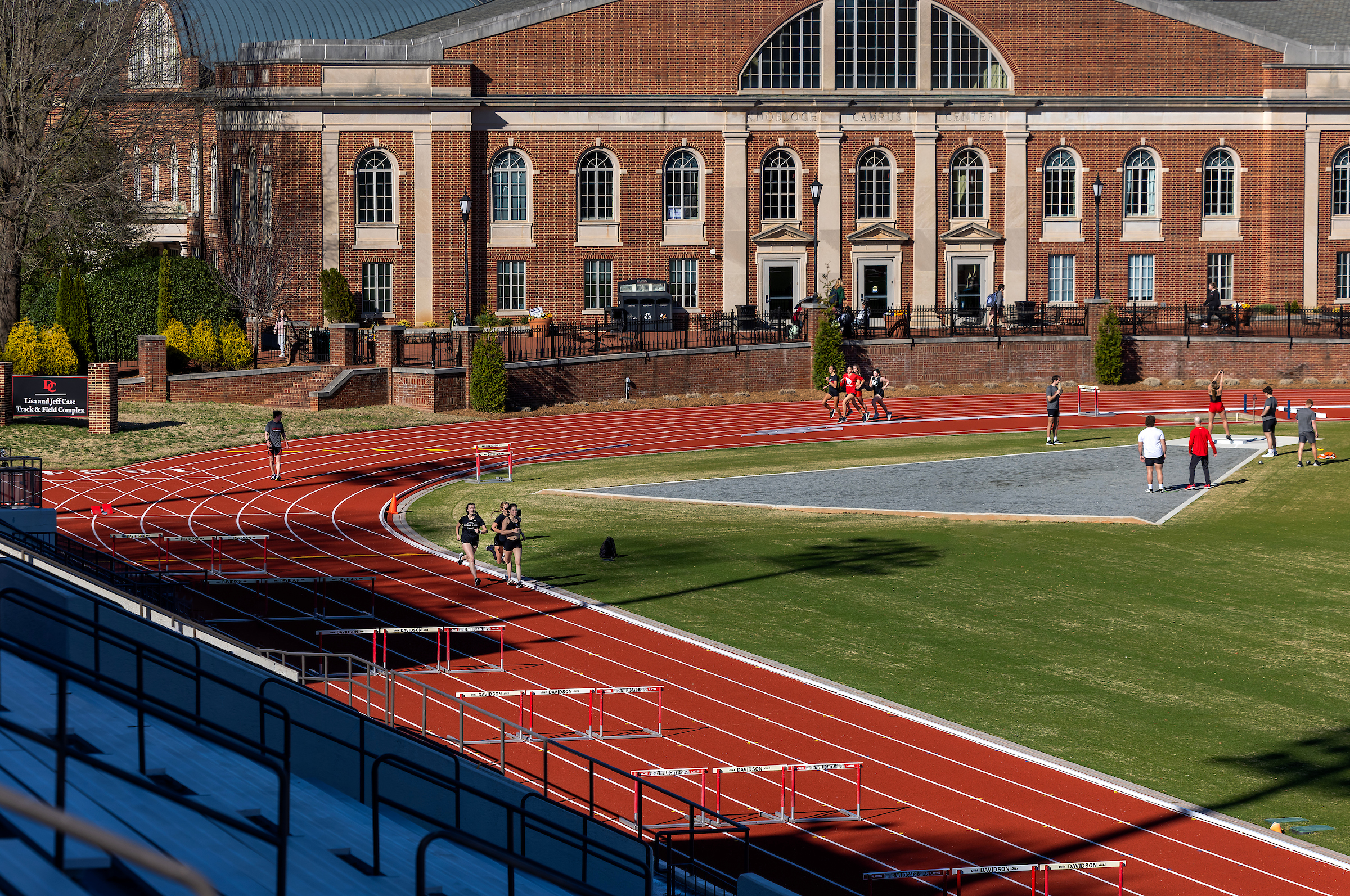Davidson College Farm Feeds Neighbors in Need
January 14, 2021
- Author
- Mary Elizabeth DeAngelis

Food banks across the country are grappling with fallout from the pandemic, and the demand for fresh produce has never been greater. The Davidson College Farm’s partnership with FEEDNC brings thousands of pounds of fresh produce to struggling individuals and families.
As COVID-19 emptied Davidson College’s dining halls last spring, FEEDNC experienced an extraordinary surge in suddenly jobless people needing help.
The Davidson College Farm offered its harvests—a fresh, healthy lifeline for the struggling. On Monday, when many Americans honor the legacy of Dr. Martin Luther King Jr. through service, feeding the hungry in a global pandemic seems especially fitting.
Lilly Greene and Ethan Kearns have clocked in countless hours planting, weeding and harvesting crops on the Davidson College Farm.
Tomatoes, potatoes, carrots and squash. Lettuce, onions, cucumbers and beans. All organically grown, it’s food that normally ends up on the plates of students, faculty and staff. Greene ’21 and Kearns ’23 say they like working outside and knowing what they do provides the college community with healthy food.
But when the COVID-19 pandemic shut the campus down last March, the farm lost its biggest customer. And that got farm manager Joe Rowland talking with student workers and college leaders about how to turn a bad situation into an opportunity to do good.
That turned out to be a partnership with FEEDNC, a Mooresville non-profit that offers a food pantry and hot meals to people in need. Since the pandemic’s beginning, the farm has donated more than 22,000 pounds of precious produce to help people struggling through it.
“It’s such a good feeling to know that our work is helping people who need it,” said Greene, who’s been a farm volunteer and work study student. “I’ve been pretty lucky throughout this, but so many people haven’t. Food is so essential—it makes me happy to know that our farm has been there for them.”
Seeking Farm Partners
As Davidson’s campus emptied last spring, the lines at FEEDNC surged. The number of people seeking help has spiked by 164 percent since the pandemic’s beginning. Supermarkets that normally donated were running out of canned goods, meats and vegetables because of pandemic panic and distribution problems. Restaurants—another donation source—had closed.
Most coming to FEEDNC have never been before. They include jobless restaurant, hospitality and retail workers—many of whom had issues getting unemployment benefits. Some are grocery store employees with serious health conditions such as heart disease and diabetes; people afraid to work because of the increased risk they face from the virus.
“The vast majority of people we serve are the working poor,” FEEDNC Executive Director Lara Ingram said. “These are people who have two or three jobs, they have children, and they are struggling. They don’t enjoy asking for help and they try to stretch their food supplies out so that they’re taking as little as possible.”
In the food pantry world, fresh, high quality produce is gold.
Many donations, such as pastries and bread that can no longer be sold in stores, have little nutritional value. Produce coming from supermarkets is often on its last legs. FEEDNC has added the Davidson Farm produce to its “Food Pharmacy,” a program to help people manage chronic health conditions with nutritious foods, Ingram said.
“It is the best produce we’ve ever seen,” Ingram said. “It’s been incredibly helpful at a time when the need has been so great.”
Davidson’s Dining Services resumed buying produce from the farm this fall but the demand has been less than normal because of more students living off-campus and many staff members working remotely. Rowland continues to deliver what the college doesn’t use to FEEDNC and dropped off a fresh batch of winter vegetables this past week.
“As a grower, I want my food to be consumed,” Rowland said. “Getting it into the hands of the people who need it the most is very rewarding. It’s a great service for the college to do—to help community members deal with what has been a pretty hard time all around.”
Rowland said that when Davidson’s campus returns to pre-pandemic operations, he hopes the farm can continue supporting FEEDNC in some capacity.
Ingram said she hopes other farmers will take the Davidson College Farm’s lead and also consider donating produce.
“We are always desperately seeking farm partners,” she said, “and always looking for fresh fruits and vegetables.”
Kearns is happy the food he nurtured has gone to FEEDNC. He has served on the farm as a work study student since starting at Davidson. Despite many pandemic restrictions on other activities, students were able to work on the farm during the fall semester and will continue in the spring.
“I’ve always enjoyed seeing the results of the work I’ve done,” Kearns said. “It’s fun to walk into [Vail] Commons and see the lettuce in the salads and the pesto on the pizzas. It’s great knowing that my work is going to such a good cause—that it’s not just a job.”


